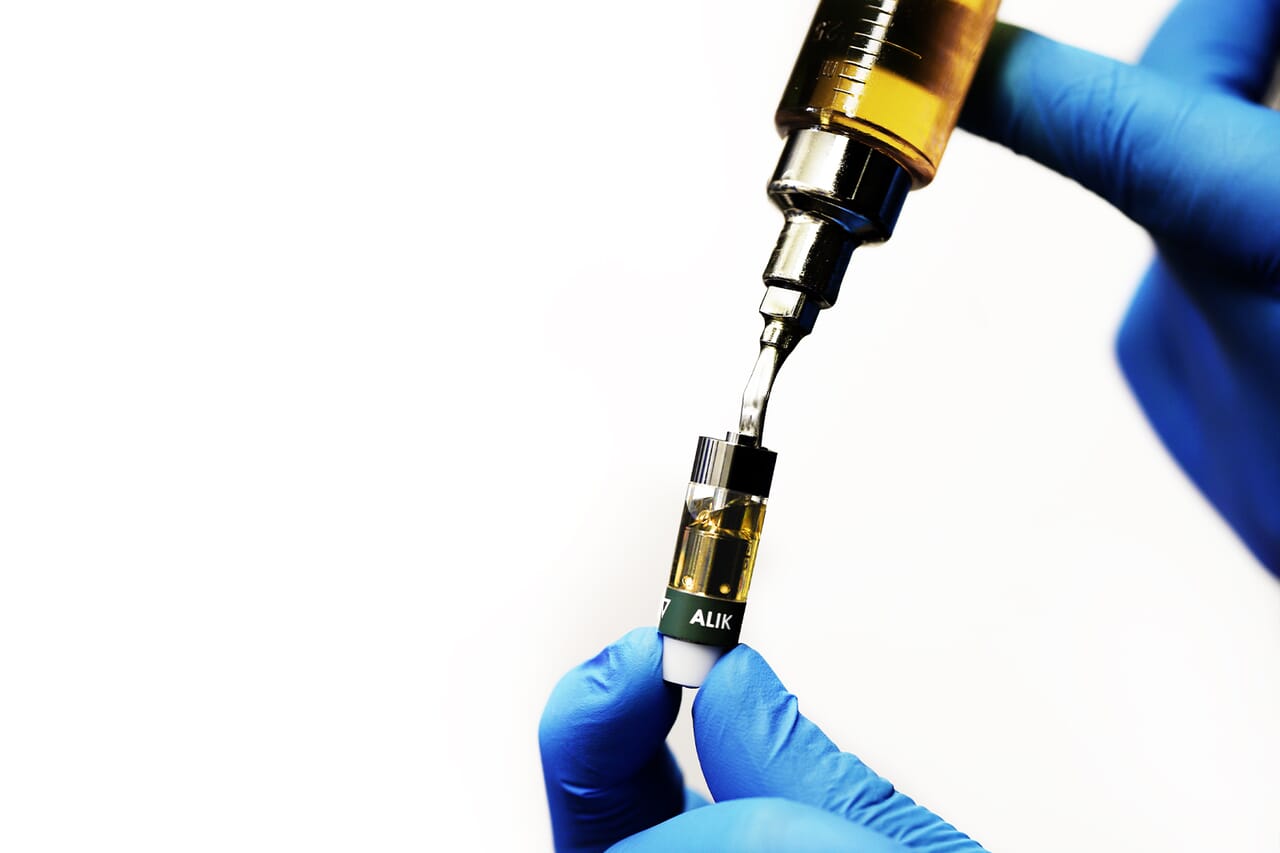The Environmental Influence of Non Reusable Carts: What Marijuana Users Required to Know
The increase in cannabis consumption has coincided with a worrying increase in the usage of non reusable vape cartridges, a fad that presents considerable environmental challenges. The single-use nature of these items aggravates plastic contamination and contributes to a larger carbon impact with their manufacturing and disposal processes. As awareness expands pertaining to the environmental ramifications of these options, cannabis customers need to examine their usage practices and think about the broader consequences of their choices. What options exist, and exactly how can users make educated choices that align with an extra lasting future?
Understanding Non Reusable Vape Carts
These tools normally consist of a pre-filled cartridge having marijuana oil, a battery, and a home heating aspect. This mix allows individuals to breathe in vaporized cannabis without the need for combustion, which is frequently viewed as a cleaner alternative to conventional smoking.
However, the convenience of disposable vape carts features substantial factors to consider. When depleted, these cartridges are frequently thrown away, contributing to squander streams. The materials made use of in their building and construction pose obstacles for reusing and biodegradation, as lots of elements do not easily damage down in all-natural atmospheres. Additionally, the lithium-ion batteries can be unsafe otherwise gotten rid of correctly, as they may leakage hazardous substances right into the atmosphere.
Environmental Consequences of Plastic
Plastic contamination has arised as one of one of the most pressing ecological challenges of our time. The manufacturing and disposal of plastic items, including disposable cannabis carts, add substantially to this situation. Roughly 300 million tons of plastic are created annually, with a considerable portion discovering its means into land fills and natural ecological communities.

Beyond wild animals, plastics likewise add to soil and water contamination, as toxic ingredients and chemicals seep right into the atmosphere. The energy-intensive processes involved in plastic manufacturing aggravate environment adjustment by launching greenhouse gases.
As marijuana individuals significantly turn to non reusable carts for convenience, it is essential to identify their plastic parts and the wider ramifications of their use. Addressing plastic air pollution needs collective action and a change in the direction of more lasting practices, emphasizing the need for choices and appropriate disposal methods.

The Lifecycle of Non Reusable Carts
Many consumers might not understand the complex lifecycle of disposable marijuana carts, which incorporates various stages from manufacturing to disposal. The lifecycle starts with the removal of raw materials, mainly steels and plastics, which are refined and molded into the elements of the cart. This production procedure often includes considerable power intake and exhausts, adding to the overall carbon footprint.
When created, these non reusable carts are full of cannabis oil, frequently packaged in additional materials for retail circulation. Using these items commonly results in a single-use scenario, leading to a rapid boost in waste. After a consumer has finished using a disposable cart, it is often disposed of incorrectly, aggravating ecological concerns.
Additionally, the breakdown of plastics in land fills can release hazardous materials into the dirt and water. Comprehending this lifecycle is important for marijuana individuals, as it underscores the ecological implications of their intake choices and urges much more informed decisions regarding item usage.
Sustainable Alternatives for Users
As ecological worries bordering disposable marijuana carts continue to climb, individuals are increasingly looking for sustainable alternatives that minimize environmental influence. Big Chief carts. One practical alternative is using refillable vape pens, which permit consumers to buy e-liquid or oil in mass and replenish their tools multiple times. This substantially reduces the amount of plastic waste created, as users can keep the very same device for a prolonged duration
An additional sustainable option is this website the application of biodegradable or compostable cartridges made from environmentally friendly materials. These items are made to break down much more normally than typical plastics, thus reducing their unsafe effects on the environment. Furthermore, some business are currently supplying glass cartridges, which can be reused or recycled, even more reducing waste.
Additionally, selecting natural and local cannabis products can contribute to sustainability by supporting environmentally responsible farming practices. Individuals can likewise promote for brands that prioritize sustainability you can find out more in their production procedures. By making thoughtful choices concerning their intake, marijuana customers can play an essential duty in advertising eco pleasant techniques within the sector, inevitably causing an extra lasting future for marijuana usage.
Taking Action for Modification
A significant shift towards sustainable practices within the marijuana industry requires proactive involvement from consumers, policymakers, and manufacturers alike. Consumers play an essential function by promoting for environmentally friendly products and sustaining brands that prioritize sustainability. By picking recyclable or refillable options over non reusable carts, customers can signal to manufacturers that there is a need for ecologically responsible choices.
Producers must additionally take the effort by purchasing r & d of lasting product packaging services. Innovations such as naturally degradable products and closed-loop systems can significantly minimize waste. Transparency in sourcing and manufacturing procedures is crucial, allowing customers to make informed options about their purchases.
Policymakers can promote this change by applying regulations that urge sustainable methods within the sector (Big Chief carts). Incentives for business adopting eco-friendly modern technologies and stricter policies on single-use plastics can drive substantial improvements
Collective efforts amongst these stakeholders will certainly be critical in attending to the environmental obstacles positioned by disposable carts. By fostering a culture of sustainability within the marijuana community, it is feasible to decrease ecological impacts while promoting accountable intake. Eventually, collective activity can lead to a much more lasting future for the marijuana sector and the planet.
Verdict
The environmental influence of disposable vape cartridges necessitates urgent focus from cannabis users. By prioritizing environmentally friendly alternatives, consumers can play an essential role in lowering waste and promoting an extra sustainable cannabis culture.
The production and disposal of plastic products, consisting of non reusable cannabis carts, contribute considerably to this dilemma.Several consumers may not recognize the complicated lifecycle of non click reference reusable marijuana carts, which includes various phases from manufacturing to disposal.As soon as generated, these disposable carts are loaded with cannabis oil, typically packaged in secondary materials for retail circulation.As ecological concerns surrounding disposable marijuana carts proceed to increase, individuals are increasingly seeking lasting choices that reduce ecological effect. By making thoughtful choices regarding their intake, marijuana users can play an important function in promoting environmentally pleasant methods within the market, ultimately leading to an extra sustainable future for cannabis usage.